About LifeSpring Health Systems
LifeSpring Health Systems is located in Jeffersonville, Indiana. This is an organization that provides a continuum of services to men and women working through mental health and addiction struggles. They provide care in an outpatient setting and also offer assessments and medical services including referrals to psychiatrists who can help determine if medication support is needed. If you need more intensive support, you can get referred to their residential treatment facility, where there is physician supervision to help you work through the early stages of your addiction recovery journey.
They accept policies from most major insurance providers, and you won’t be denied care because of an inability to pay. There are sliding scale discounts available as well, which will help reduce the cost of care.
Addiction Support
Their Jeffersonville outpatient clinic can be a supportive place to turn to if you know you need support but don’t know where to find quality care you can trust. Depending on where you’re at in your recovery journey, you’ll be referred to one of their two residential treatment programs or can get referred to an inpatient program through a community provider.
You’ll find that with their intensive outpatient and outpatient services, there’s a strong focus on evidence based practices. This includes individual therapy, skills training, peer support services, medication management and medication assisted treatment. Struggles with co–occurring mental health challenges are also addressed here.
Crisis Support and Community Services
You’ll also find they have a dedicated crisis support program if you need immediate care. Once you’re stabilized, you’ll move into the recovery program or get connected to another program that can best serve you outside of the LifeSpring Health network.
LifeSpring Health Systems does a really good job fostering community relationships with community providers and state agencies as well. This comes in handy if you need more specialized care than they can provide here.
Specialized Services
Within the LifeSpring Health System, you’ll find a number of specialized treatment tracks that help serve individuals from all walks of life. For example, there are support programs for veterans, adolescents and families. Age appropriate counseling sessions can help uncover underlying health struggles that are at play while getting to the root cause of the challenges you’re facing.
Latest Reviews
Rehab Score
Gallery
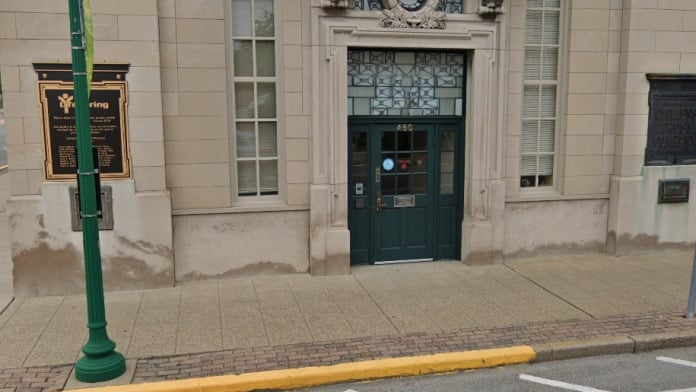
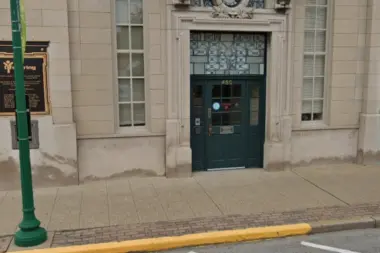
Other Forms of Payment
Medicaid is a state based program that helps lower-income individuals and families pay for healthcare. Medicaid covers addiction treatment so those enrolled can use their coverage to pay for rehab. When a program accepts Medicaid the client often pays very little or nothing out of their own pocket.
Private insurance refers to any kind of healthcare coverage that isn't from the state or federal government. This includes individual and family plans offered by an employer or purchased from the Insurance Marketplace. Every plan will have different requirements and out of pocket costs so be sure to get the full details before you start treatment.
Self-pay involves paying for treatment out of your own pocket. You can use savings or credit, get a personal loan, or receive help from family and friends to fund your treatment. If you don't have insurance or your insurance plan doesn't cover a specific program, self-pay can help ensure you still get the care you need.
Financial aid can take many forms. Centers may have grants or scholarships available to clients who meet eligibility requirements. Programs that receive SAMHSA grants may have financial aid available for those who need treatment as well. Grants and scholarships can help you pai for treatment without having to repay.
Sliding scale payments are based on a client's income and family size. The goal is to make treatment affordable to everyone. By taking these factors into account, addiction recovery care providers help ensure that your treatment does not become a financial burden to you or your family, eliminating one barrier to care.
Medicare is a federal program that provides health insurance for those 65 and older. It also serves people under 65 with chronic and disabling health challenges. To use Medicare for addiction treatment you need to find a program that accepts Medicare and is in network with your plan. Out of pocket costs and preauthorization requirements vary, so always check with your provider.
Military members, veterans, and eligible dependents have access to specific insurance programs that help them get the care they need. TRICARE and VA insurance can help you access low cost or no cost addiction and mental health treatment. Programs that accept military insurance often have targeted treatment focused on the unique challenges military members, veterans, and their families face.
Addiction Treatments
Levels of Care
Outpatient Programs (OP) are for those seeking mental rehab or drug rehab, but who also stay at home every night. The main difference between outpatient treatment (OP) and intensive outpatient treatment (IOP) lies in the amount of hours the patient spends at the facility. Most of the time an outpatient program is designed for someone who has completed an inpatient stay and is looking to continue their growth in recovery. Outpatient is not meant to be the starting point, it is commonly referred to as aftercare.
Residential treatment programs are those that offer housing and meals in addition to substance abuse treatment. Rehab facilities that offer residential treatment allow patients to focus solely on recovery, in an environment totally separate from their lives. Some rehab centers specialize in short-term residential treatment (a few days to a week or two), while others solely provide treatment on a long-term basis (several weeks to months). Some offer both, and tailor treatment to the patient's individual requirements.
Treatments
The goal of treatment for alcoholism is abstinence. Those with poor social support, poor motivation, or psychiatric disorders tend to relapse within a few years of treatment. For these people, success is measured by longer periods of abstinence, reduced use of alcohol, better health, and improved social functioning. Recovery and Maintenance are usually based on 12 step programs and AA meetings.
For long-term recovery from drug addiction, drug rehab in Indiana is often key. This treatment gives individuals who are struggling with a substance use disorder the tools to manage their disorder and achieve long-term sobriety.
Opioid rehabs specialize in supporting those recovering from opioid addiction. They treat those suffering from addiction to illegal opioids like heroin, as well as prescription drugs like oxycodone. These centers typically combine both physical as well as mental and emotional support to help stop addiction. Physical support often includes medical detox and subsequent medical support (including medication), and mental support includes in-depth therapy to address the underlying causes of addiction.
Substance rehabs focus on helping individuals recover from substance abuse, including alcohol and drug addiction (both illegal and prescription drugs). They often include the opportunity to engage in both individual as well as group therapy.
Programs
Adult rehab programs include therapies tailored to each client's specific needs, goals, and recovery progress. They are tailored to the specific challenges adult clients may face, including family and work pressures and commitments. From inpatient and residential treatment to various levels of outpatient services, there are many options available. Some facilities also help adults work through co-occurring conditions, like anxiety, that can accompany addiction.
Young adulthood can be an exciting, yet difficult, time of transition. Individuals in their late teens to mid-20s face unique stressors related to school, jobs, families, and social circles, which can lead to a rise in substance use. Rehab centers with dedicated young adult programs will include activities and amenities that cater to this age group, with an emphasis on specialized counseling, peer socialization, and ongoing aftercare.
Clinical Services
Group therapy is any therapeutic work that happens in a group (not one-on-one). There are a number of different group therapy modalities, including support groups, experiential therapy, psycho-education, and more. Group therapy involves treatment as well as processing interaction between group members.
Staff & Accreditations
Staff

Beth Keeney, DrPH, MBA
President/CEO
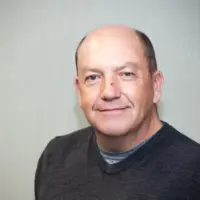
Nick Clark
Executive Vice President & Chief Financial Officer
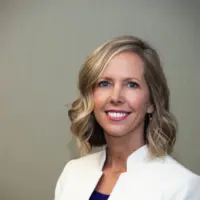
Misty Gilbert
Executive Vice President and Chief Operating Officer
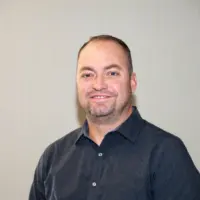
Eric Yazel, MD
Senior Vice President for Medical Services and Chief Medical Officer

Eric Jaggers, MD
Vice President for Psychiatric Services
Accreditations

The Joint Commission, formerly known as JCAHO, is a nonprofit organization that accredits rehab organizations and programs. Founded in 1951, the Joint Commision's mission is to improve the quality of patient care and demonstrating the quality of patient care.
Joint Commission Accreditation: Yes
Contact Information
460 Spring Street
Jeffersonville, IN 47130